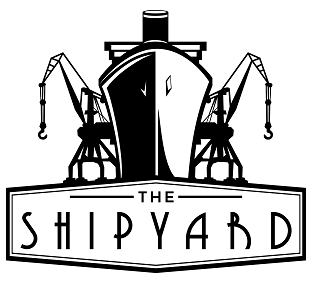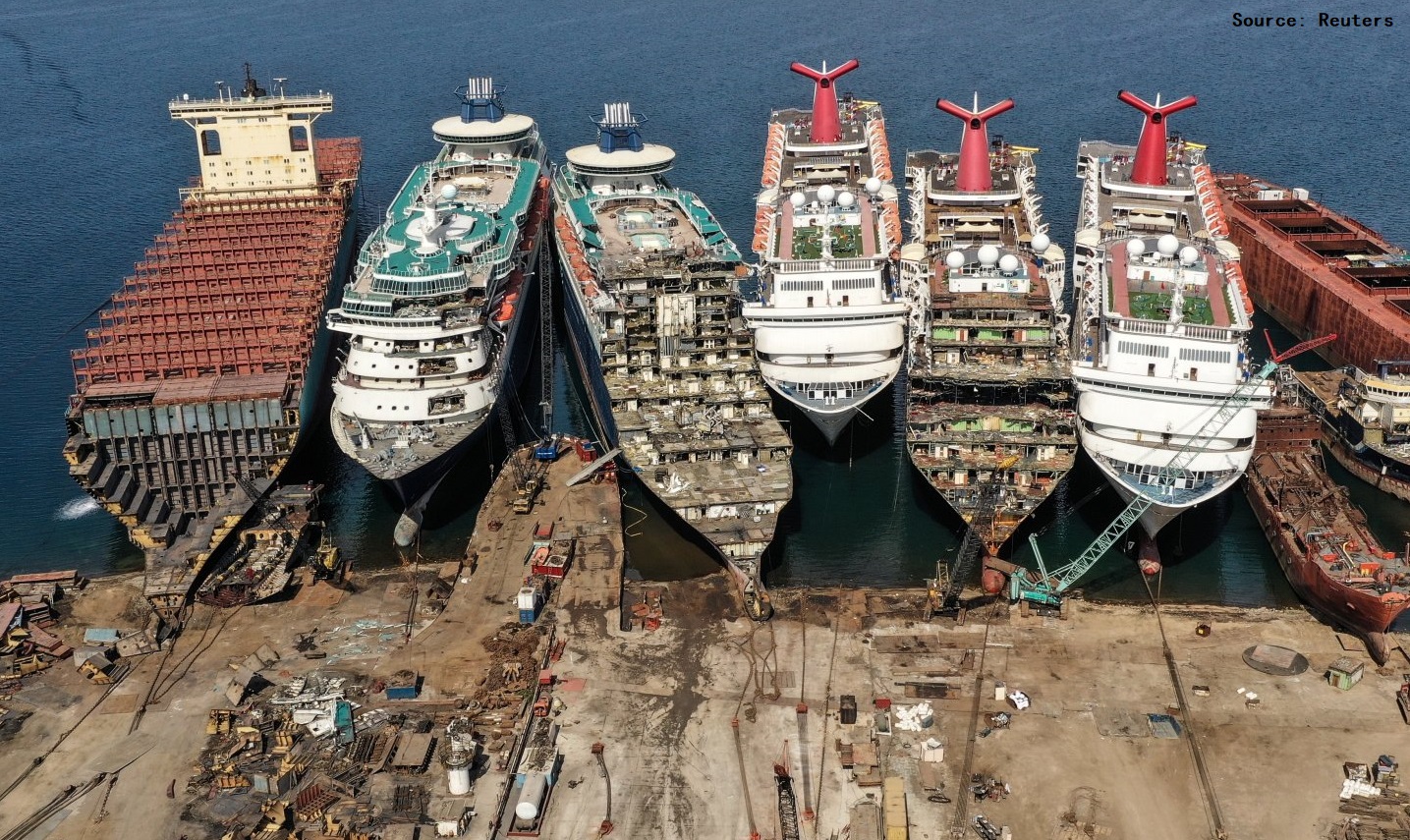As the pandemic swept through the world, numerous vessels lingered at anchor, unused. Combined with rising metal prices due to global material shortages, recycling became more lucrative than ever. Galvanized by the prospect of turning rust into gold, Bangladesh, China, India, Pakistan, and Turkey reached for the lion’s share in ship breaking. After all, these five countries scrap 9 out of every 10 merchant vessels. But the European Union, home of the largest container lines and a few major tanker companies, refused to sit and watch a golden opportunity trickle away. Now, an old feud is being rekindled, the prize – $150 billion a year. The gloves are off.
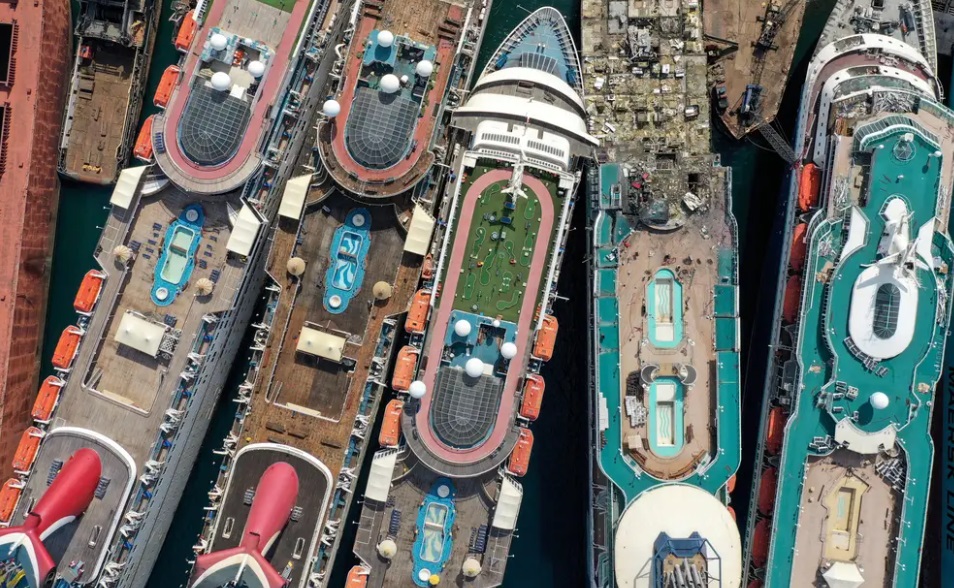
Paper Battles
Ship breaking is plagued by numerous problems, with safety being the most severe and widely discussed. Large, complex, and loaded with hazardous materials, ships are tricky to dismantle. In this intricate process, accidents are frequent, while the quantities of toxic waste released in the environment are practically unknown.
To put some order in the chaos, the IMO composed a list of guidelines in 2009, known as the Hong Kong International Convention for the Safe and Environmentally Sound Recycling of Ships. After fourteen years of hopping from one desk to another, the convention is now ratified by 20 countries, comprising almost a third of global gross recycled tonnage of merchant shipping. But with the minimum threshold being 40% of global processed tonnage, the rules are still not officially in force, with many players hesitating to take the costly plunge.
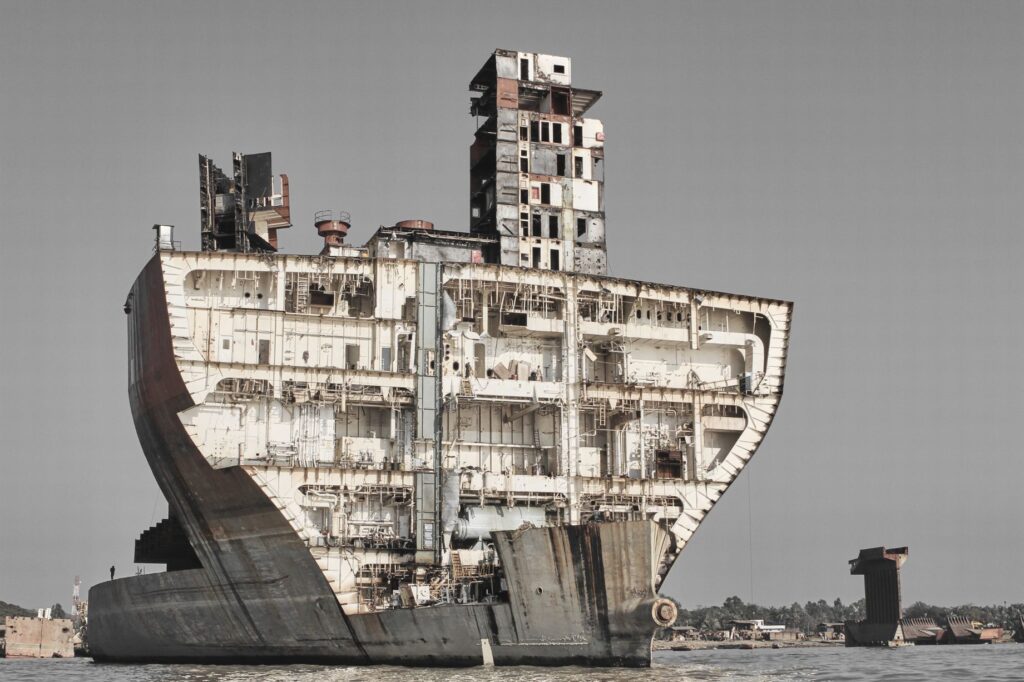
The HKC aims to cover most problematic aspects of recycling – ship design, facility operation, as well as control and reporting – through measures such as an inventory of hazardous materials or elimination of hazardous materials in vessels and shipyards. And while the inventory will be monitored and recorded throughout the vessel’s life and will ultimately serve as the foundation of the recycling plan, control over ship breaking facilities remains a somewhat blurry topic.

In view of the HKC’s blind spots and slow progress, the European Union saw an opportunity to enforce its own framework, giving a competitive advantage to domestic shipyards. The EU Ship Recycling Regulation builds on top of IMO rules, while also capitalizing on the weakest points of Asian ship breakers: pollutant management, workers’ rights, third-party auditing, and the extensive use of beaching. Applying to both EU-flagged vessels and third-party ones calling at EU ports, the SRR effectively denied India, Bangladesh, China, and Pakistan access to the European market.
A Showdown?
On paper, the advantages of the EU SRR are undeniable – expediency, precision, and stringent control. After all, the Union’s 2013 decision was unilateral, requiring no validation from third-parties or signatories. It went into force within a few years, in stark contrast to the Hong Kong Convention’s snail-pace adoption. In addition, the SRR lists several cases, in which third parties can alert the authorities of any non-compliance on behalf of ship breaking yards – a significant improvement of the IMO’s vague position on the issue. But many analysts point out an obvious Achilles’ heel: is the EU’s regulation realistic in the long term?
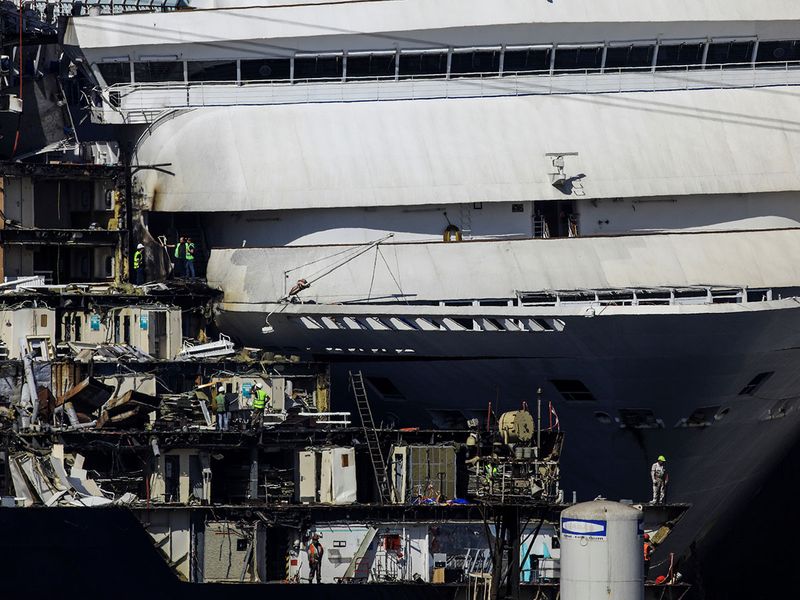
So far, the industry has been more welcoming to the IMO’s HKC, with even European operators brushing off EU regulations as just another bureaucratic nuisance. Recent statistics show that shipowners would rather use flags of convenience than risk getting mired in long and costly battles with European authorities. Meanwhile, ship breaking behemoths in India and Bangladesh demonstrate decisive steps toward adoption of the Hong Kong rules, with Bangladesh announcing its intention to ratify the convention in 2023. This is big news for the shipping industry, as Dhaka’s signature would finally allow the treaty to enter into force.
A Clear Victory?
Some analysts predict that the ratification of the HKC would be the first step towards compliance with the EU’s higher environmental standards, but shipping companies seem motivated to hold their ground in the face of heavy-handed authoritarian measures. This, in addition to widespread skepticism that the EU SRR is nothing more than blatant protectionism, may in the future force the Union to make sobering adjustments to its stringent policies.
The Shipyard
